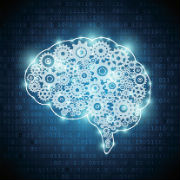Health Catalyst Launches Open-Source Machine Learning
Healthcare Catalyst releases healthcare.ai, and open-source community for healthcare AI developers to freely download algorithms to bring AI benefits to all healthcare orgs.

- Health Catalyst has announced the launch of their open source analytics solution to encourage healthcare organizations currently implementing successful artificial intelligence (AI) solutions for predictive analytics to make their solutions widely available .

Health Catalyst’s healthcare.ai was built to make machine learning accessible to healthcare organizations with limited means to develop their own AI analytics solutions but with to improve the quality of their patient’s care with predictive analytics.
The healthcare.ai site intends to be a central location for healthcare professionals to download free algorithms and tools, and participate in forum discussions with data scientists and other healthcare professionals to exchange ideas, make requests, and contribute code of their own.
"Machine learning and artificial intelligence are going to transform healthcare. We are seeing amazing results and yet we are barely getting started. We are applying it to the reduction of patient harm events, care management, hospital acquired infections, revenue cycle management, patient risk stratification, and more," said Dale Sanders, Executive Vice President of Health Catalyst.
Sanders hopes to facilitate industry-wide collaboration among healthcare professionals by making proven predictive analytic algorithms available so multiple organizations can contribute to produce enhanced tools that will benefit organizations and potentially quicken the widespread adoption of healthcare analytics.
Open-source software has benefited many industries and technologies over the years including healthcare. Open-source EHRs have assisted organizations in developing better EHRs as different needs were realized and shared in the source code by the developers with the community.
Open-source software benefits healthcare organizations, especially institutions that are unable to afford a full scale AI deployment. Open-source software does not charge licensing fees for their code, freeing up funds for other IT initiatives and allowing organizations to take advantage of advanced technology to the benefit of patients.
healthcare.ai is available in R and Python languages and features open-source repository packages in both languages. Organizations use their own data to create predictive and pattern recognition models using machine learning. The solution aims to:
- Pay attention to longitudinal questions
- Offer an easy way to do risk-adjusted comparisons
- Provides easy connections and deployment to databases
Sanders believes that AI solutions are too valuable to the healthcare industry to be restricted to certain organizations or specific conditions, stating,
We believe that machine learning is too helpful and important to be handled solely by full-time data scientists. The new tools in healthcare.ai enable BI developers, data architects, and SQL developers to create appropriate and accurate models with healthcare data, without hiring a data scientist. These tools will democratize machine learning in a realm that needs it most—because everyone benefits when healthcare is made safer, more efficient and effective. And, we are not just being altruistic here. By submitting our tools and algorithms to the open source community, we and our clients will benefit from the collective intelligence that exists beyond our team of data scientists.
AI will benefit healthcare because computers do not forget what they have learned and don’t have inherent biases, assisting doctors in making decisions based on objective data. The computer can detect even the smallest shifts in patterns and detect inconsistencies sooner, resulting in earlier and more accurate diagnosis and better patient care.
In addition to diagnosis and treatment, AI also has a place in patient engagement. Value-based care encourages organizations to personalize patient experience and openly communicate with them. AI voice-response bots are a possible future option for AI in healthcare by using natural language processing to engage patients remotely and advise them on what to do based on previously collected and sorted data.
While fully realized AI deployments are still several years away, vendors and healthcare organizations are working together to produce AI solutions for the benefit of clinicians and patients alike.
Dig Deeper:
- Big Data, Artificial Intelligence, IoT May Change Healthcare in 2017
- Artificial Intelligence to Strain Health IT Infrastructure
